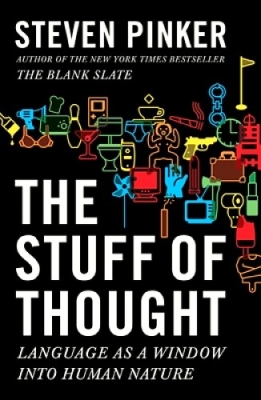- HOME
- INTRO TO THE FORUM
- USE AND MISUSE
- BADLY WRITTEN, BADLY SPOKEN
- GETTING
TO KNOW ENGLISH - PREPARING FOR ENGLISH PROFICIENCY TESTS
- GOING DEEPER INTO ENGLISH
- YOU ASKED ME THIS QUESTION
- EDUCATION AND TEACHING FORUM
- ADVICE AND DISSENT
- MY MEDIA ENGLISH WATCH
- STUDENTS' SOUNDING BOARD
- LANGUAGE HUMOR AT ITS FINEST
- THE LOUNGE
- NOTABLE WORKS BY OUR VERY OWN
- ESSAYS BY JOSE CARILLO
- My Hunch Was Right About The Usage Of “Between” And “Among”
- Your Handling Of Numbers And Time Reflects The Clarity Of Your Thinking
- The Subject-Verb Agreement Rule Isn’t Really A Fail-Safe Prescription
- On Those Two Most Dreadful Clichés
- Elliptical Sentences Often Read And Sound Better Than Regular Sentences
- Avoiding The Embarrassing Pitfall Of Misusing Certain English Words
- ABOUT JOSE CARILLO
- READINGS ABOUT LANGUAGE
- TIME OUT FROM ENGLISH GRAMMAR
- NEWS AND COMMENTARY
- BOOKSHOP
- ARCHIVES
READINGS IN LANGUAGE
This new section features links to interesting, instructive, or thought-provoking readings about the English language. The selections could be anywhere from light and humorous to serious and scholarly, and they range widely from the reading, writing, listening, and speaking disciplines to the teaching and learning of English.
Need for self-control strategies over the growing electronic media
Writing in response to the alarm being raised against the proliferation and growing primacy of electronic technologies, Harvard University psychology professor Steven Pinker argues that such panics over new media often fail basic reality checks. In an op-ed article written for the June 10, 2010 issue of The New York Times, Pinker acknowledges that such new communication technologies can indeed be distracting or addictive, especially to people with attention deficit disorder. Even so, he says, “the solution is not to bemoan technology but to develop strategies of self-control, as we do with every other temptation in life. Turn off e-mail or Twitter when you work, put away your Blackberry at dinner time, ask your spouse to call you to bed at a designated hour.”
Pinker, author of The Stuff of Thought: Language as a Window into Human Nature (Viking Adult, 512 pages), proposes to apply such reality check on the state of science today: “These days scientists are never far from their e-mail, rarely touch paper and cannot lecture without PowerPoint. If electronic media were hazardous to intelligence, the quality of science would be plummeting. Yet discoveries are multiplying like fruit flies, and progress is dizzying. Other activities in the life of the mind, like philosophy, history and cultural criticism, are likewise flourishing, as anyone who has lost a morning of work to the Web site Arts & Letters Daily can attest.”

Pinker also dismisses the claim of critics of new media that the experience with the new technologies can wreak irreversible havoc on the human brain, saying that cognitive neuroscientists roll their eyes at such talk. He explains: “Yes, every time we learn a fact or skill the wiring of the brain changes; it’s not as if the information is stored in the pancreas. But the existence of neural plasticity does not mean the brain is a blob of clay pounded into shape by experience.”
Instead of being scared of them, Pinker says, we should appreciate the Internet and information technologies for helping us manage, search and retrieve our collective intellectual output at different scales, from Twitter and previews to e-books and online encyclopedias. “Far from making us stupid, these technologies are the only things that will keep us smart,” he says.
Read Steven Pinker’s “Mind Over Mass Media” in The New York Times now!
Read about the contrarian view of Nicolas Carr in his book The Shallows!
ABOUT THE AUTHOR:
Steven Pinker is a Canadian-American experimental psychologist, cognitive scientist, linguist and author of popular science. A psychology professor at Harvard University, Pinker is known for his wide-ranging advocacy of evolutionary psychology and the computational theory of mind. He is the author of five books for a general audience, among them The Language Instinct (1994), How the Mind Works (1997), Words and Rules (2000), The Blank Slate (2002), and The Stuff of Thought (2007). Pinker’s books have won numerous awards and have been New York Times best-sellers.
Click to read comments or post a comment
View the complete list of postings in this section
(requires registration to post)






